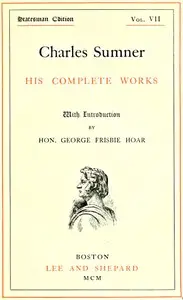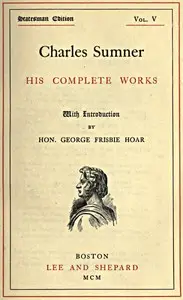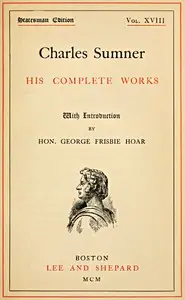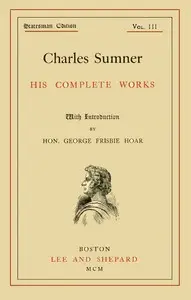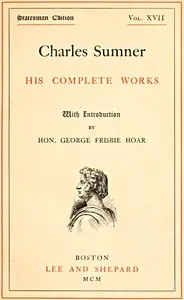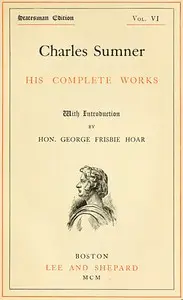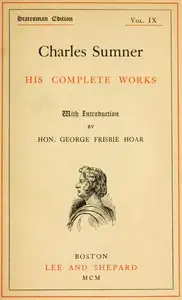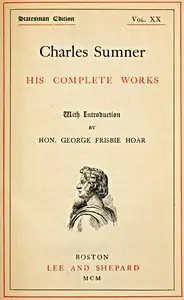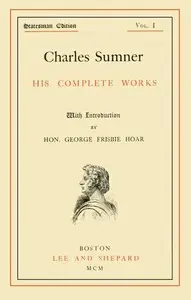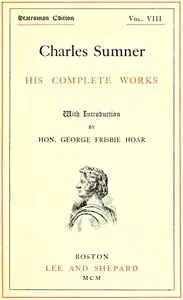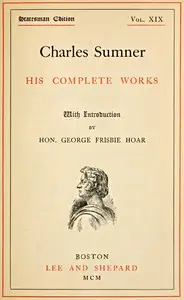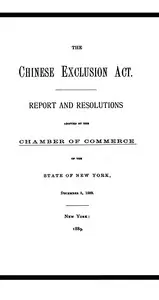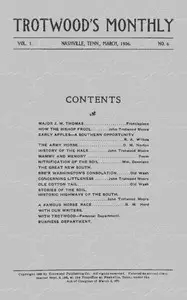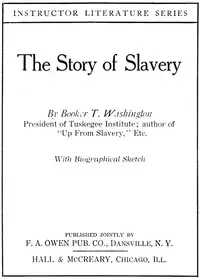"Charles Sumner: his complete works, Volume 04 (of 20)" by Charles Sumner is a compilation of writings and orations from a passionate senator during a transformative period in American history, with an introduction that lays out the scope of Sumner's focus on the pivotal debates of slavery and civil rights. The collection begins by presenting Sumner's arguments for honoring societal contributions, such as his plea for recompense to Andrew J. Downing's widow, but quickly pivots to the core of his life's work: the fight against slavery. Later speeches, including one delivered at a Free-Soil Party convention, reveal Sumner's dedication to freedom, his condemnation of pro-slavery politics, and his unwavering call for moral and political action.
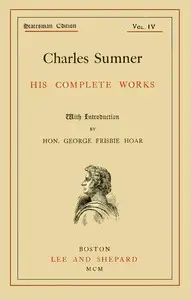
Charles Sumner: his complete works, volume 04 (of 20)
By Charles Sumner
Witness the powerful words of a 19th-century senator as he battles injustice and champions civil rights in a nation on the brink of change.
Summary
About the AuthorCharles Sumner was an American lawyer, politician, and statesman who represented Massachusetts in the United States Senate from 1851 until his death in 1874. Before and during the American Civil War, he was a leading American advocate for the abolition of slavery. He chaired the Senate Foreign Relations Committee from 1861 to 1871, until he lost the position following a dispute with President Ulysses S. Grant over the attempted annexation of Santo Domingo. After breaking with Grant, he joined the Liberal Republican Party, spending his final two years in the Senate alienated from his party. Sumner had a controversial and divisive legacy for many years after his death, but in recent decades, his historical reputation has improved in recognition of his early support for racial equality.
Charles Sumner was an American lawyer, politician, and statesman who represented Massachusetts in the United States Senate from 1851 until his death in 1874. Before and during the American Civil War, he was a leading American advocate for the abolition of slavery. He chaired the Senate Foreign Relations Committee from 1861 to 1871, until he lost the position following a dispute with President Ulysses S. Grant over the attempted annexation of Santo Domingo. After breaking with Grant, he joined the Liberal Republican Party, spending his final two years in the Senate alienated from his party. Sumner had a controversial and divisive legacy for many years after his death, but in recent decades, his historical reputation has improved in recognition of his early support for racial equality.

